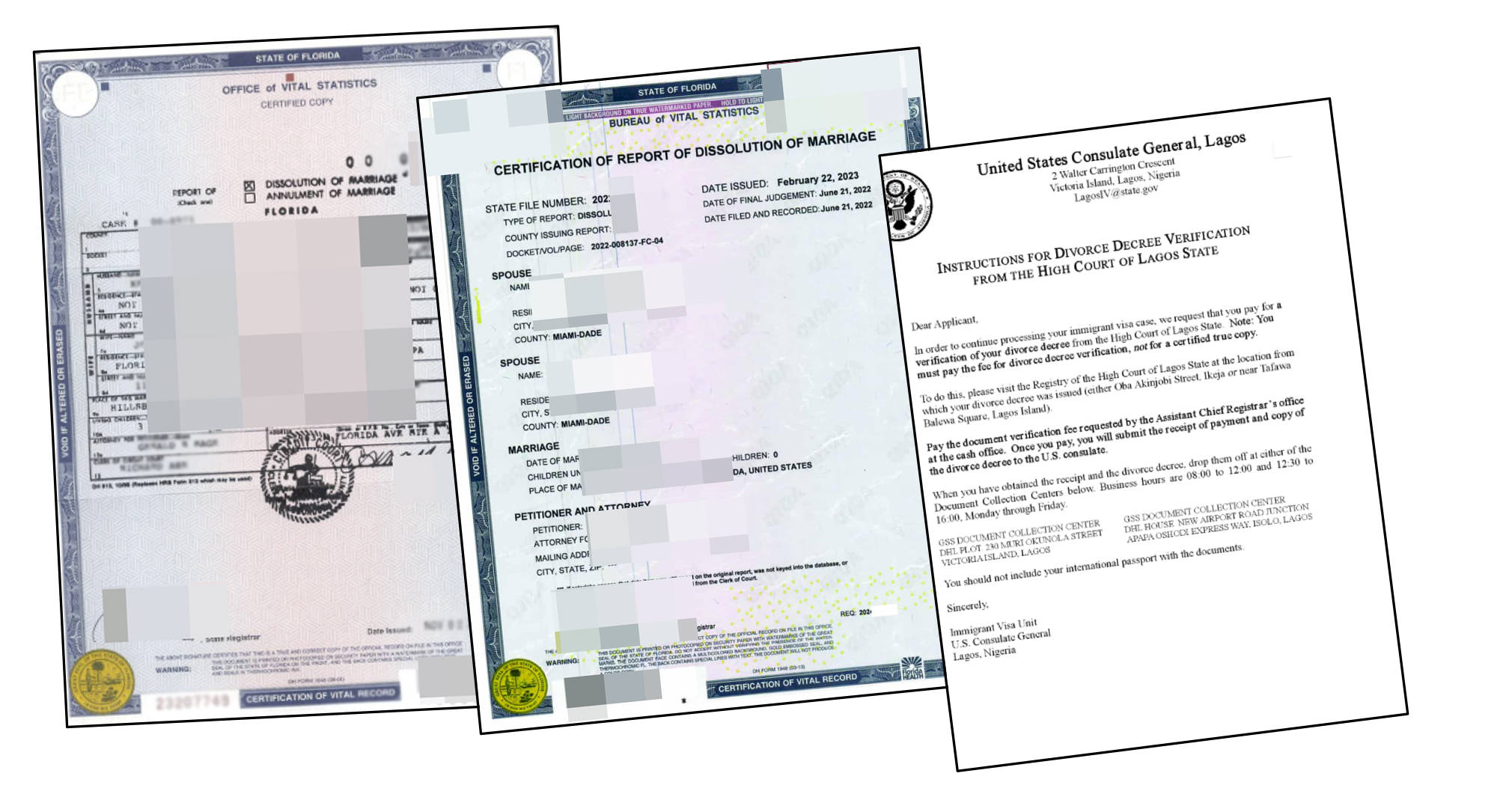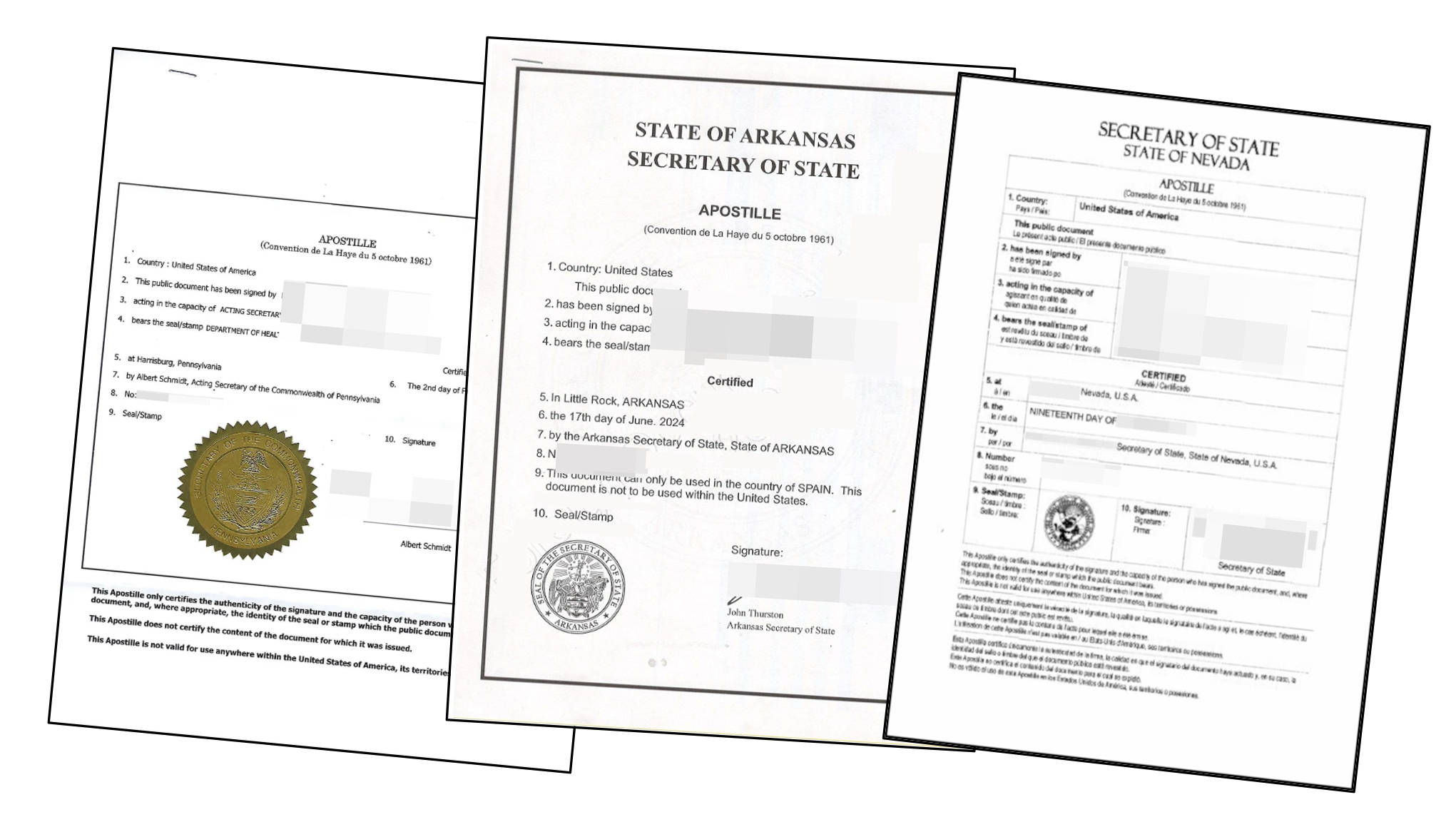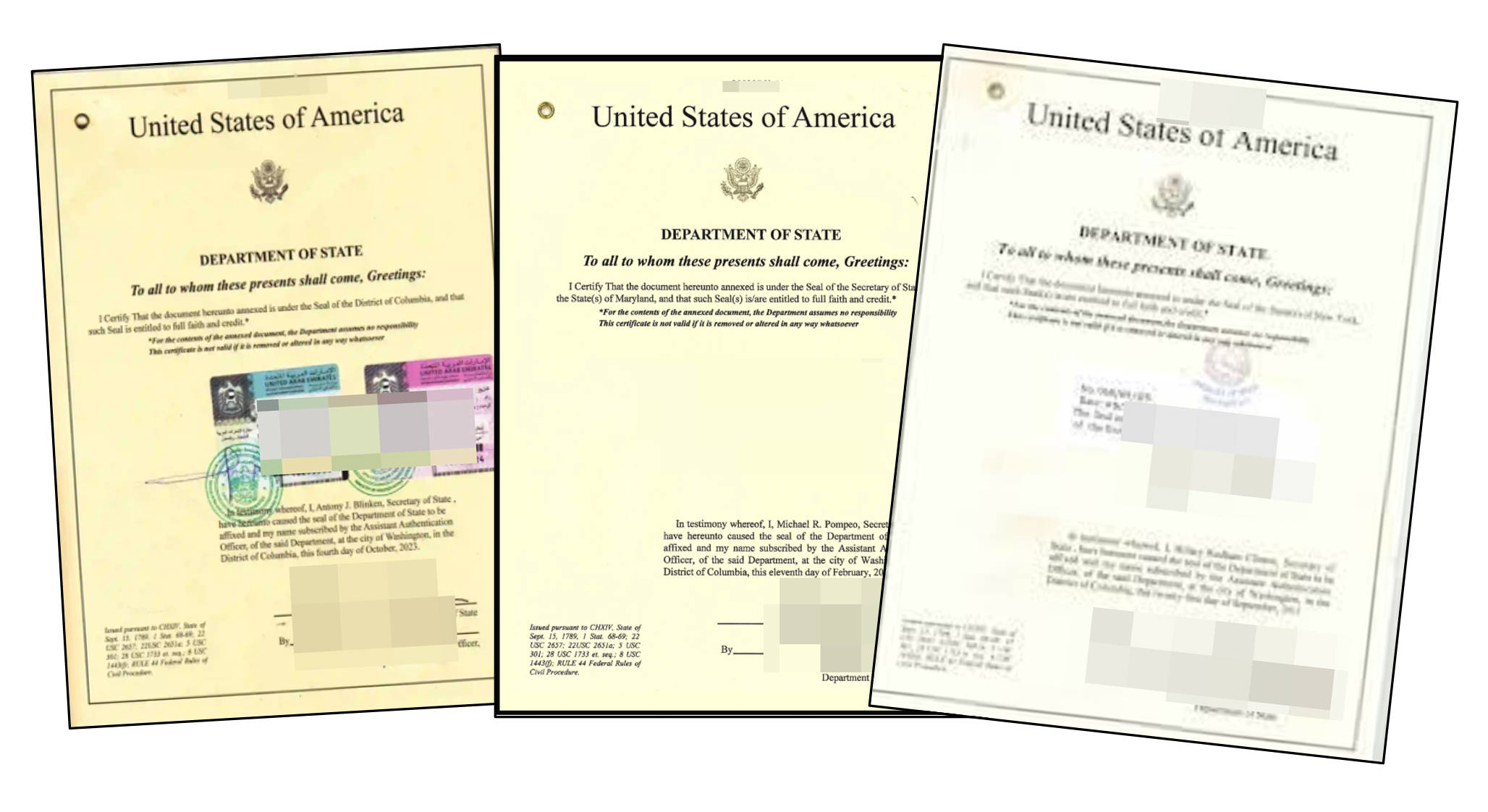Hague Certification and Consular Authentication of a U.S. Divorce Decree

What is a U.S. Divorce Decree?
When a marriage ends in the United States, a Divorce Decree serves as the final legal record of that process. This document not only clearly states the official date of divorce but also outlines the legal rights and responsibilities of both parties regarding property division, child custody, alimony, and other matters.
For those who need to use this document abroad, it is more than just proof of the end of a marriage—it is an essential legal certificate that validates your personal identity and rights in an international legal context.
Example of a U.S. Divorce Decree
Many people feel confused when they first hear about a U.S. Divorce Decree—what exactly is it for? Let’s put it simply: If you were previously married to a U.S. citizen and registered your marriage in the United States, then later filed for divorce in a U.S. court and completed all legal procedures, the judge would issue an official document. This document is the Divorce Decree, which serves as the legal confirmation that your marriage has officially ended—like a “graduation certificate” marking the conclusion of your marital relationship.
Now, let’s look at a real-life example: A client, Mr. Zhang (pseudonym), went through a divorce in Los Angeles, California. The judge from the Los Angeles County Superior Court issued the final Divorce Decree after completing the legal process. Why Los Angeles? Because that’s where the couple lived and worked together for a period, and both their marriage and divorce were filed there. Each state and city has its own jurisdiction rules, and this is just one example to illustrate the process.
Now, here’s the issue: Mr. Zhang has returned to China and is currently living in Beijing. He plans to remarry or handle legal matters related to property transfers, household registration, or child custody. However, Chinese authorities—such as the Civil Affairs Bureau, Real Estate Transaction Center, or other institutions that review marital status—do not automatically recognize foreign divorce documents. To be legally valid in China, his U.S. Divorce Decree must go through a legalization process to confirm its authenticity.
Previously, if Mr. Zhang wanted his U.S. Divorce Decree to be recognized in China, he had to go through a lengthy process involving certification by the U.S. Department of State and then consular authentication by the Chinese embassy or consulate in the U.S. This process was complex, time-consuming, and required multiple steps.
The Good News: Hague Apostille Now Accepted in China.On March 8, 2023, China signed the Convention Abolishing the Requirement of Legalization for Foreign Public Documents (commonly known as the Hague Apostille Convention), which officially took effect on November 7, 2023.
This means that instead of the traditional consular authentication, Mr. Zhang now only needs to obtain an Apostille from the relevant U.S. authority. Once the Apostille is attached to his Divorce Decree, the document will be automatically recognized in China without needing additional certification from the Chinese consulate.
This change significantly simplifies the process, reduces costs, and saves time, making it much easier for people like Mr. Zhang to use their U.S. legal documents in China.
To ensure that his U.S. Divorce Decree can be smoothly used in Beijing, Mr. Zhang decided to seek help from a professional service provider. He heard that the Washington D.C. Notary Office (a foreign document authentication service agency related to Washington D.C.) is highly professional, so he entrusted them with the process.
Why choose them? Because they are well-versed in the court document procedures across different U.S. states and fully understand the Apostille certification requirements under the Hague Convention. More importantly, they have legitimate and reliable channels to handle the process efficiently.
In simple terms, this means Mr. Zhang doesn’t need to fly back to the U.S. or go through the hassle of dealing with both U.S. and Chinese authorities himself. Instead, by providing the necessary documents and granting authorization, he can have the agency handle the notarization and Apostille certification for his Divorce Decree in the U.S., making the whole process much easier and more convenient.
Once the Washington D.C. Notary Office completed the Apostille certification for Mr. Zhang’s U.S. Divorce Decree and handed him the finalized document, he could take it to the relevant authorities in China. Whether it was the marriage registration office, property transfer bureau, or child custody filing department, these agencies would directly recognize the document’s legal validity.
This helped Mr. Zhang avoid a series of complicated problems:
✔ No need for the lengthy traditional consular authentication process – Previously, the process involved multiple steps: local notarization in the U.S., state-level certification, U.S. Department of State authentication, and finally consular legalization at the Chinese embassy or consulate in the U.S. The entire process was time-consuming and tedious.
✔ Saves time and money – He no longer needs to travel back and forth between China and the U.S. or rely on intermediaries to handle the repeated procedures.
✔ Documents are directly valid in China – Since China joined the Hague Apostille Convention, a U.S. Divorce Decree with an Apostille serves as an “international pass,” making it much easier to use legally in China.
By entrusting the Washington D.C. Notary Office to handle the Hague Apostille certification for his U.S. Divorce Decree, Mr. Zhang’s divorce status was directly recognized in China. As a result, he was able to smoothly proceed with remarriage registration, property transactions, and child visitation arrangements.
Cases like this are becoming increasingly common, and more people are realizing that seeking professional assistance for document authentication is a fast and efficient way to ensure that foreign legal documents are recognized and enforceable in their home country.
The company names and personal names mentioned in this case are entirely fictional. Any resemblance to real individuals or organizations is purely coincidental. This case study is provided for informational purposes only, offering a general framework for understanding the process. Before making any decisions, please evaluate your specific situation carefully and seek professional advice or further verification if needed.
What is a U.S. Apostille?
When you need to use a U.S.-issued legal document internationally, an Apostille serves as your “global pass.” In simple terms, a U.S. Apostille is a standardized certification method that verifies the authenticity, legality, and validity of documents issued by U.S. government agencies.
For example, if you plan to remarry, apply for immigration, or transfer property in a country that is a member of the Hague Apostille Convention, your U.S. Divorce Decree with an Apostille can be directly recognized by the relevant authorities in that country—without requiring additional, complex legalization procedures.
Essentially, an Apostille acts as an international stamp of approval, helping you avoid unnecessary legal risks and the hassle of traveling between multiple countries for document authentication.
What is U.S. Consular Authentication?
If your target country is not a member of the Hague Apostille Convention, your U.S. Divorce Decree may require a different certification process—U.S. Consular Authentication.
This method involves additional verification by the U.S. Department of State and the U.S. embassy or consulate in the destination country. Essentially, it adds an extra layer of official endorsement, ensuring that your document is recognized as authentic and legally valid in international legal settings.
Though the consular authentication process can be more complex, it provides a stronger level of verification for documents used in non-Hague countries. Whether you’re planning to remarry, handle immigration matters, or resolve international child custody issues, consular authentication helps gain the trust of local authorities and ensures smooth legal proceedings.
Washington D.C. Notary Office – Your Trusted Certification Partner
Feeling overwhelmed by the complex foreign legal requirements and authentication procedures? Don’t worry—you’re not alone. Washington D.C. Notary Office is here to help.
We understand that time and accuracy are critical for our clients. Perhaps your life has already moved forward in a new country, and all you need is a professional team to quickly handle the certification of your U.S. Divorce Decree. That’s where Washington D.C. Notary Office comes in—a trusted partner with extensive experience and efficient processes, specializing in Apostille and Consular Authentication services.
With us, you won’t have to navigate the complicated legal landscape alone. Simply provide your documents, and we’ll take care of the rest—helping you overcome international legal barriers with ease.
At Washington D.C. Notary Office, we don’t just offer certification services—we build a seamless bridge for international legal recognition, ensuring that your legal rights are respected and upheld anywhere in the world.
Apostille Sample

Authentication Sample
